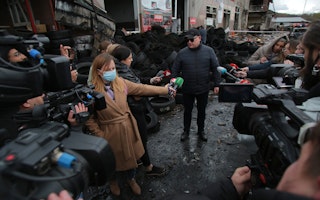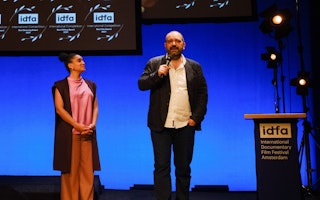Free Speech Debate Needs You
By Timothy Garton Ash
Every day brings a new story related to global free speech. Twitter “censoring” tweets in different countries. A Pakistani journalist murdered. The EU commissioner trying to impose tighter privacy standards on internet service providers. SOPA in the U.S. and ACTA across the world. Chinese microbloggers breaking news which the authorities wish to hide. The Piss Christ vandalized. Why so many? Because we are all neighbors now. State and other barriers to the flow of information and ideas are breaking down, with two billion people connected on the internet and another two billion by mobile devices.
This is why we urgently need a debate on what should be the global norms for freedom of expression—not just national ones, like the First Amendment in the United States, Indian law in India, Chinese decisions in China, and so on. This is what a major research project at Oxford University (also supported by the Open Society Foundations) is trying to promote. Free Speech Debate is a global, multilingual website for the discussion of free speech in the age of mass migration and the internet. Ten draft principles for global free speech are laid out, together with explanations and case studies—all for debate.
Prominent figures from diverse cultures, faiths, and political tendencies are interviewed and asked to comment, through video, audio, and text. They include Indian novelist Arundhati Roy on the media and national security in India; Iranian cleric Mohsen Kadivar on Islam and the criminalization of insults to religion; Chinese academic Yan Xuetong on universal values; former head of the Formula One association Max Mosley on privacy; Egyptian scholar Khaled Fahmy on freedom of expression in Egypt; and Aryeh Neier on free speech and the Skokie controversy.
Individual users from across the world are strongly encouraged to take part in the online discussion. They can propose new case studies and suggest revised or entirely new principles. Other forms of popular participation include online voting, live streamed events, online conversations with special guests and crowdsourcing.
The project is programmatically dedicated to taking the free speech debate beyond the West and global North, into the East and South. The entire editorial content is carefully translated into 13 languages, covering more than 80 percent of the world's internet users, by native speakers of those languages (mainly graduate students at Oxford University). Anyone can then contribute to the online discussion in these or any other widely used languages, and there is a facility to give a rough translation of every user-generated comment into most languages using machine translation. The debate is being intensively promoted through social networks, media, think tanks, universities and live events in many countries. You can follow it on Twitter, Mixi, Sina Weibo, Live Journal, and Facebook.
I would like to very strongly encourage all members of the worldwide Open Society family to come on the site and engage in the debate. Free Speech Debate needs you!
Timothy Garton Ash is professor of European studies in the University of Oxford, Isaiah Berlin Professorial Fellow at St Antony’s College, Oxford, and a senior fellow at the Hoover Institution, Stanford University.


